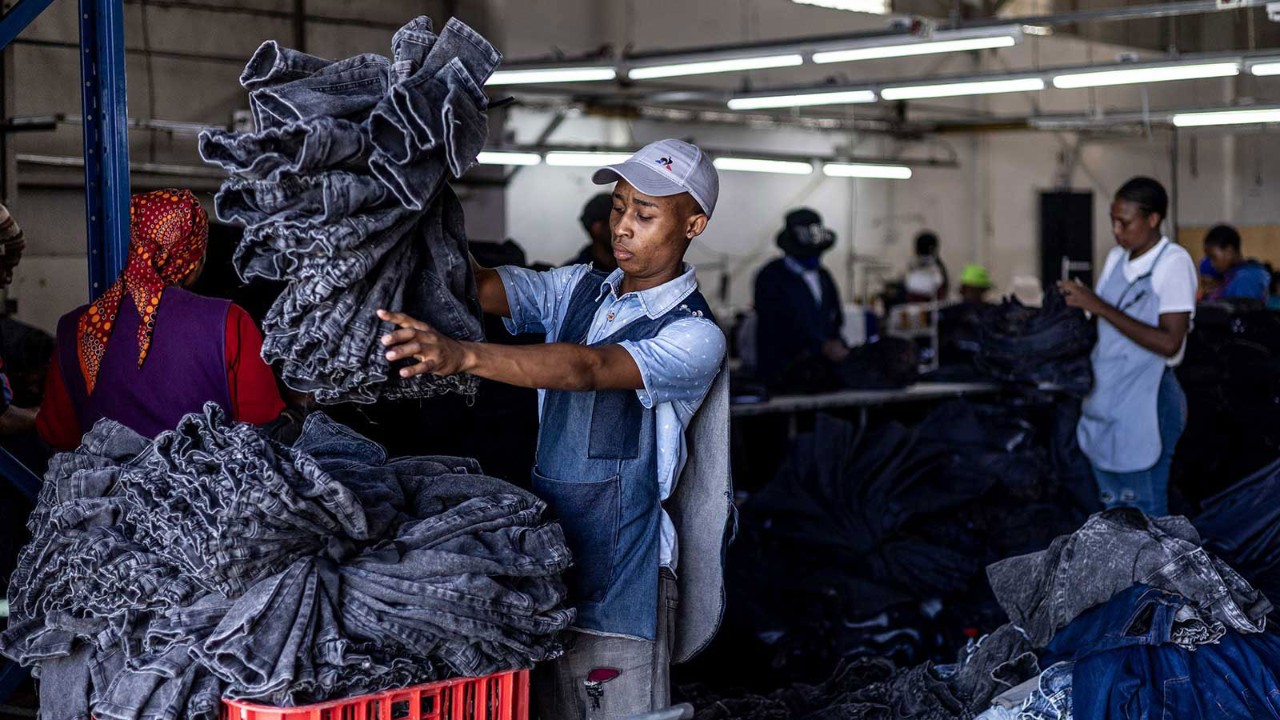
Professional accountants across Africa are advising clients to protect themselves from the ongoing convolutions in trade policy from the administration of US president Donald Trump.
Some of the African ‘reciprocal’ tariffs in Trump’s so-called ‘Liberation Day’ announcements of 2 April were particularly high (and appear to correlate with countries‘ trade surpluses with the US rather than their tariffs on imports from the US). For example, the world’s joint second-highest tariff of 50% was imposed on the small mountain kingdom of Lesotho. Africa’s largest economy, South Africa, faces a 30% universal tariff on goods exports to the US while for Indian Ocean powerhouse economy Mauritius it’s 40%. Other African countries facing 20%+ tariffs include Botswana (37%), Réunion (37%), Angola (32%), Côte d’Ivoire (21%) and Namibia (21%).
‘Do scenario planning behind the scenes, but don’t panic yet’
Following Trump’s partial U-turn on 9 April, blanket 10% tariffs remain in place until 9 July for all countries. The higher rates are suspended until then, pending trade negotiations with Washington.
South Africa
Duane Newman, South Africa tax sustainability partner at EY, says most advisers ‘are telling clients to pause, breathe and wait for the situation to unfold a bit while understanding there are implications. Do scenario planning behind the scenes, but don’t panic yet.’
Nearly half of South Africa’s US$14.7bn in exports to the US are critical minerals which benefit from a historic tariff exemption, although a White House review announced on 15 April may (or may not) decide to retain this exemption. Beyond critical minerals, there is a particular focus on iron, steel and aluminium (subject to special section 232 tariffs of 25%), and the automotive sector, Newman says. ‘All the clients I advise in the metals sector have said, OK, we have dealt with it before and have priced it in.’
‘If after 90 days we are at 30% and others at 10%, we will have a problem’
Other sectors are in ‘wait and see mode’ to find out where tariffs will be set between 10% and 30%, depending on the success of South African lobbying of Washington, Newman says. ‘There is anxiousness about how business will be impacted, with accountants needing to run some scenarios. It is not about what the tariff rate will be, but fundamentally what it will be versus competitor producers.’ The general advice, Newman adds, is to ‘run numbers, understand the market, pause and reflect, and make sure you understand your pricing, competitors, trade flows and what opportunities can open up, such as exports through the African Continental Free Trade Area’.
South African businesses will also be exposed to changes in the global market and a possible economic slowdown caused by the Trump trade wars. Newman says: ‘Accountants and auditors need to think carefully about global impacts and the future outlook, such as stranded assets that need to be dealt with. As tariffs are on/off, the current challenge is that most decisions, whether in mining, automotive or manufacturing, are long term and wanting some policy certainty. Only some sectors are used to that, such as mining, which has better appetite for policy uncertainty than automotive.’
Donald MacKay, founder of Johannesburg-based XA Global Trade Advisors, says the overall tariff impact ‘will not be huge unless after 90 days we are at 30% and others at 10%. Then we will have a problem, without a doubt.’ He adds that exports affected by the tariffs are worth around 1.3% of South Africa’s GDP.
Lesotho
In neighbouring Lesotho, accountants are telling clients to prepare for the worst, if trade talks with the Trump administration fail and a 50% rate is imposed. Lesotho has little room for manoeuvre as it imposes average tariffs of just 7.5% on the US, not the 99% claimed by the Trump administration.
According to the Observatory of Economic Complexity, Lesotho exporters sold US$228m worth of goods to the US in 2023 – over 10% of the country’s annual GDP. Key exports are diamonds, textiles, clothing and wool.
Minister of foreign affairs and international relations Lejone Mpotjoaneome says some clothing and textile businesses may not survive a 50% tariff. ‘Around 40% of those companies are exporting to the US, which means there will be a devastating loss of around 12,000 jobs,’ he says. That would have a ‘high impact’ on a country of 2.3 million people with GDP per head of just US$1,106.
‘Negotiate with suppliers to lower their prices’
Sesinyi Rakubutu, managing partner of CGT & Associates, based in the capital Maseru, advises Lesotho accountants to help clients renegotiate supplier contracts, seeking price reductions or other benefits so that all export supply chain businesses share the tariff burden.
‘Since tariffs and taxes increase the total cost of products, you can negotiate with your suppliers to lower their prices, offer discounts or provide other incentives to offset the impact of tariffs on your costs,’ Rakubutu says. ‘You should communicate clearly and transparently with your suppliers about the tariff situation and how it affects your business relationship.’ He also suggests pressing clients to explore alternative export markets, such as South Africa and Europe.
Rakubutu says accountants should also encourage clients to consider insurance, such as business interruption policies, and closely monitor economic trends to guide clients on strategic adjustments to supply chains and financial strategies. This will feed into ‘accurate financial planning, which helps businesses stay ahead of policy shifts’, he says.
Mauritius
John Chung, managing partner of KPMG Mauritius, says a high tariff rate would nullify the US African Growth and Opportunity Act (AGOA) of 2000, which has helped boost export-led income across the continent. He stresses that Mauritian exporters have benefitted from AGOA’s ‘customs-free, quota-free access to the US market’. US imports from Mauritius during 2024 were worth US$234.5m (representing 1.6% of Mauritius’s US$14.6bn GDP) while US exports to the country were worth US$48m. Clothing, livestock and jewellery are among the key Mauritian exports to the US.
‘Make the most of the next 90 days, by accelerating your exports’
Mauritian businesses with a high dependency on exports to the US should explore market diversification, contract renegotiation and cashflow projection reviews, Chung says. He advises businesses to ‘make the most of the next 90 days, by accelerating their exports, where lead time permits’, utilising higher working capital to meet any temporary surge in sales.
Like other African accountants, Chung hopes the 90-day suspension of ‘reciprocal’ tariffs will be permanent. But with the Trump administration continuing to shift its ground, there can be no guarantee of that happening.
More information
Visit ACCA’s tariff insights page for perspectives and resources



